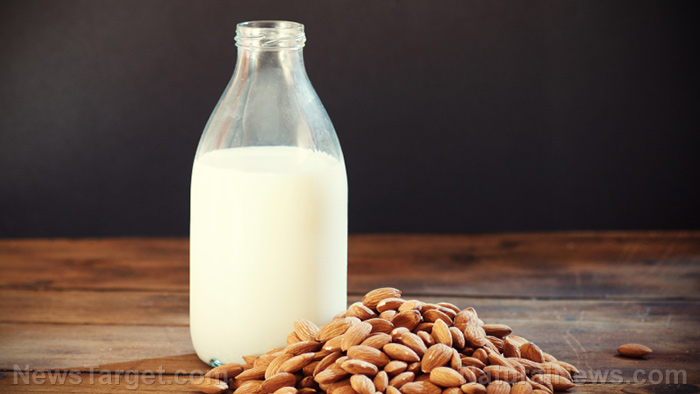
Advertisement
Sales of plant-based milks are rising worldwide as more and more people switch to vegan and sustainable alternatives. But make no mistake: Plant-based alternatives to cow and goat’s milk aren’t just another passing food craze.
Even if you’re not lactose-intolerant, opting for plant-based milks opens up a wide range of nutritional benefits, from weight loss to better heart health. Plus, plant-based milk production isn’t steeped in nutrition controversies and questionable practices. All in all, plant-based alternatives appear to be the superior choice for all things milk.
We’ve rounded up some of the healthiest plant-based milks on the market that taste just as good, if not better than conventional milk:
Pea milk
Pea milk is a fast becoming a rising star in the world of plant-based milks. It is made from pea protein isolate, water and natural emulsifiers like sunflower oil. In terms of taste, pea milk has hints of an earthy, vanilla flavor. In fact, it doesn’t taste like peas at all.
Coconut milk
Coconut milk is a popular drink in most tropical countries where coconuts are abundant. This milk is made from water and shredded coconut meat. Coconut milk also has a higher fat content than other plant-based milks. But don’t fret: These fats help keep you full for longer periods.
Oat milk
Oat milk is perhaps one of the trendiest milks available in the market. Made from gluten-free oats and added fiber, oat milk makes for a more filling milk alternative than other milks.
Almond milk
Almond milk is perhaps the first milk that comes to mind when people think of milk alternatives, and for good reason. Almond milk boasts an impressive nutrition profile loaded with calcium, potassium and vitamins D and E. That said, almond milk does contain fewer proteins than other milk alternatives, so it’s best to complement it with chopped nuts, nut butter and other plant-based protein sources.
Cashew milk
Cashew milk is another popular milk alternative derived from nuts. It is often used to make homemade tea lattes or added to herbal teas for a bit of flavor. Cashew milk contains about 40 to 50 calories per cup, and it is also loaded with immune-boosting nutrients like zinc, copper and magnesium.
Peanut milk
In terms of flavor, peanut milk is reminiscent of both almond and cashew milk. Peanut milk is also quite sustainable to produce as it uses less water. It is also one of the richest sources of protein among plant-based milk alternatives.
Flax milk
Flax milk makes for the perfect breakfast milk at 70 calories per cup. It is made from a combination of water and flaxseed oil, as well as pea protein to boost its nutrition profile. Flaxseeds also contain alpha-linolenic acid, a plant-based omega-3 fat that helps prevent arterial stiffness and high blood pressure.
Hemp milk
Hemp milk’s high magnesium, calcium and vitamin D content rivals that of cow’s milk. It is also rich in omega-3 fatty acids that support heart health and guard against inflammation. Hemp milk is also high in calories. That said, it contains less fiber than other plant-based alternatives, and its mild bitter flavor is an acquired taste.
Rice milk
Rich milk is made from a combination of rice and water. Because it has a milder taste and a lower calorie content than other milk alternatives, some store-bought rice milks tend to have added sugar. When it comes to rice milk, opt for those made from organic brown rice to avoid some of the potential toxins found in white rice products.
Walnut milk
Walnut milk is an excellent choice if you’re looking to consume more omega-3s. It is also loaded with a whopping 120 calories per cup, making it one of the heaviest milk alternatives available.
Given the surge of recognition and acceptance for sustainable foods and ethical food production, plant-based milks are making a comeback.
However, beware of plant-based milks that have been tampered with calcium-carbonate to mimic the rich white color of cow’s milk. Calcium carbonate is a cheap form of calcium that should not be consumed in large quantities.
For more articles about plant-based foods and other vegan milk alternatives, visit Veggie.news.
Sources:
Advertisements







